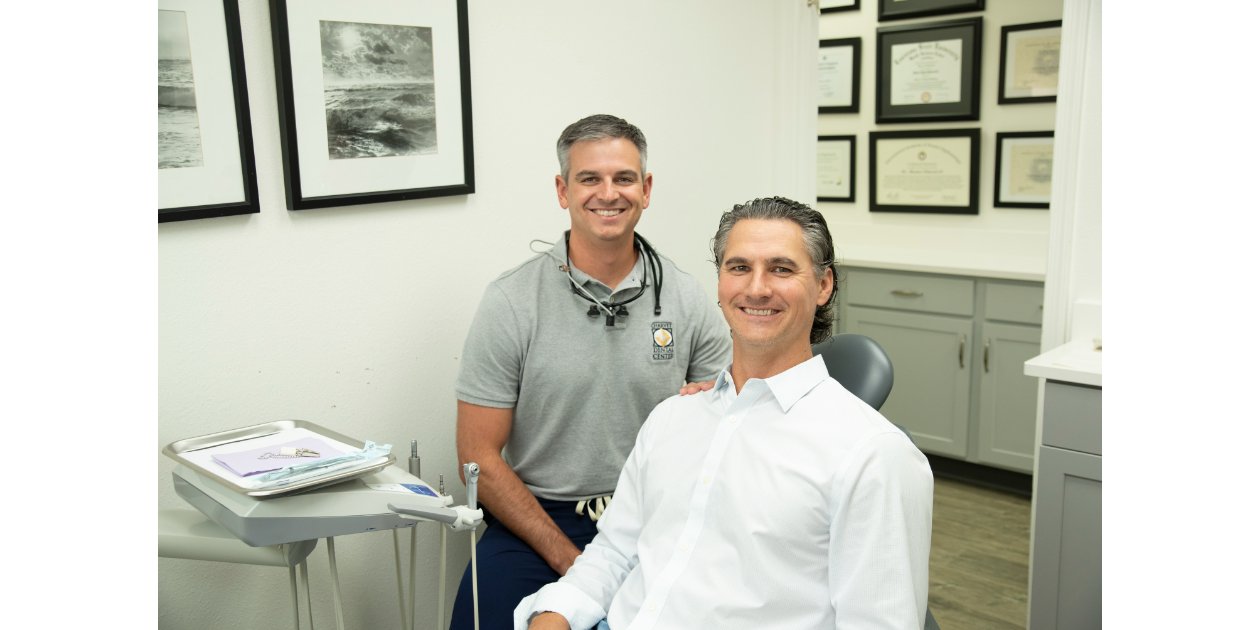No one is ever happy to have missing teeth. There are a number of options available in dentistry to help with this issue, but today, Charvet Dental Center will focus on one in particular. What are dental implants? Read on to find out how they can help far beyond replacing missing teeth.
Basics of Dental Implants
- Dental implants are artificial tooth roots that are placed surgically into the jawbone, usually to provide a foundation for missing teeth.
- The implants themselves serve as anchors for crowns, bridges, or dentures, offering a permanent solution when teeth are missing.
- They are made of titanium, which is a biocompatible material that fuses with the jawbone through a process called osseointegration.
- They can also be used as a cosmetic measure in certain cases where functionality isn’t an issue.
Do I Need Dental Implants?
There are a number of reasons for this treatment option. Here are a few scenarios where Dr. Hunter or Dr. Hunter Jr. may suggest implants:
- Improvement of Denture Stability: For patients with removable dentures, the anchoring function of implants can help them to remain securely in place. This provides additional comfort and confidence when speaking and eating.
- Preservation of Jawbone: When a tooth is lost, the jawbone can be susceptible to deteriorating over time due to lack of stimulation. The artificial tooth roots help to keep the jawbone strong and dense.
- Prevention of Shifting Teeth: When a tooth is lost, adjacent teeth may gradually shift into the empty space, leading to misalignment. Dental implants fill this gap.
- Restoration of Facial Structure: Tooth loss can contribute to changes in facial structure, leading to a sunken or aged appearance. Dental implants support the facial structure and help maintain a more youthful look.
- Treatment of Trauma or Injury: Implants may be recommended as part of a treatment plan for individuals who have experienced trauma or injury resulting in the loss of one or more teeth.
- Chronic Tooth Infections: In cases where a tooth is severely infected and cannot be saved through traditional dental treatments such as root canal therapy, extraction followed by an implant may be a valid consideration.
- Genetic or Developmental Factors: Some individuals may have congenital conditions or developmental issues that result in missing teeth. Implants can be used to replace these missing teeth and restore a complete smile.
- Cosmetic Improvements: When patients desire a natural-looking smile restoration, implants are available as a permanent option.
Considerations we have to make vary based on the patient. For example, we look at overall health, bone density, and oral hygiene. A thorough examination with your doctor is necessary to ensure we choose the most appropriate treatment plan for your implants.
A Typical Process
It’s important to remember that every case is different, and therefore, every treatment plan will change slightly, too. However, we are still able to give you a general outline of what this procedure looks like for the vast majority of our patients.
- Initial Consultation: The process starts with a comprehensive consultation where we evaluate the variables we mentioned earlier, take x-rays, and discuss your goals and expectations.
- Treatment Planning: Based on this discussion, we can develop a personalized treatment plan. This includes the number of implants need, type of restoration (crown, bridge, or denture), and the anticipated timeline.
- Surgical Placement of Implant: The procedure is executed, placing the implant in the jawbone. The gum is stitched back in place to cover the implant.
- Healing and Osseointegration: This crucial stage of healing is the natural process where the implant fuses with the jawbone, resulting in stability and support. The duration of this phase varies but usually takes a few months.
- Abutment Placement: Once osseointegration is complete, a small connector called an abutment is attached to your implant(s). It protrudes above the gumline, acting as the anchor for the final restoration.
- Impressions and Restoration Design: Impressions of the abutment and surrounding teeth create a custom-made restoration. This will be a crown for a single implant or a bridge/denture for multiple ones. The restoration is designed to match natural teeth in color, size, and shape to look as real as possible.
- Placement of the Final Restoration: The final step is to attach the restoration to the abutment. Your dentist checks for proper fit, bite, and aesthetics. You will then leave our office with your fully restored and functional tooth or set of teeth!
- Follow-up and Maintenance: Any dental procedure necessitates follow-up appointments to ensure the implant’s success and address any concerns that may arise. Good oral hygiene, including regular brushing, flossing, and cleaning, is essential for maintaining your implant(s) over time.
The Root of Success
Every manner of invasive procedure can cause anxiety—we know. But we are experts in our field and ensure that every single patient is treated with compassion and excellence. If you’ve been considering dental implants, the time to act is now! You can reach our Metairie office at 504-834-6504.
 Schedule Now
Schedule Now


